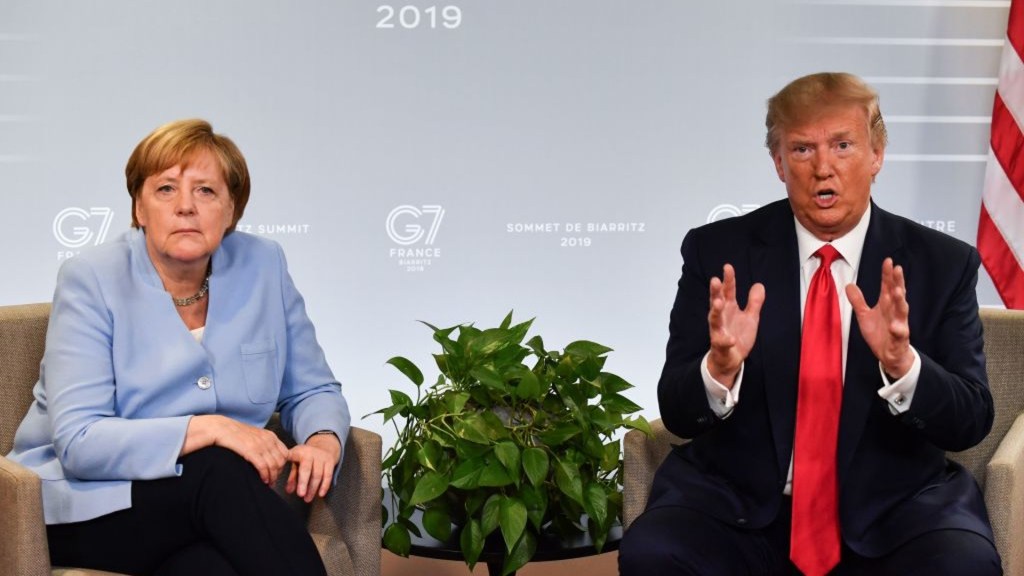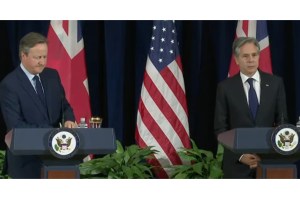He doesn’t know much about how to control a virus. Nor does he show much sign of being able to run an administration with any semblance of competence. But there is one thing that Donald Trump does know how to do. Hit a raw nerve. And in his decision to attack Germany, and its increasingly destabilizing role in world affairs, he looks to have done that again.
The President’s latest campaign speech in Tulsa mainly attracted attention for its reckless approach to COVID-19 and its inflammatory racial remarks on the Chinese origins of what, with his typical playground humor, he referred to as the ‘Kung flu’.
But Trump also took a few swipes at the largest European country, and the place where the Trumps originally came from. Germany was ‘ripping off’ the US, he proclaimed, arguing that the country owed America $1 trillion, and its dependence on Russian gas was funding Nato’s main opponent. Angela Merkel, apparently, ‘is a very nice woman’ but hardly to be trusted. ‘We’re supposed to protect Germany from Russia, but they are paying billions of dollars to Russia for a brand new pipeline’, he argued.
Trump is a far cannier, if instinctive, politician than he is often given credit for, and he will have noticed how well that played with the crowd. And, as he sometimes does, Trump also has a point.
It is often argued that there is a growing split between America and Europe. But that isn’t quite true. There is a split, but it is between the US and Germany, not Europe. Take the issues one by one. The US complains that Europe doesn’t spend enough on defense. But Britain and France spend plenty. It is Germany that spends a mere one percent of GDP and shows no willingness to increase it.
[special_offer]
The US complains about unfair trade, but it is Germany that racks up huge surpluses with the US, while shielding itself behind EU tariffs and an artificially cheap currency, not anyone else (Germany has a €49 billion euro ($55 billion) surplus with the US, while the UK runs a €5 billion euro ($5.6 billion) surplus, and France runs a €15 billion ($16.8 billion) deficit).
And its Germany that keeps Vladimir Putin’s regime solvent with its dependence on Russian gas, while most other major European economies use far less (22 percent of Russian gas exports go to Germany compared with five percent to France). None of those are really arguments with Europe or the EU. They are arguments with Germany.
Trump likes to big up his enemies, and fire up his base, and pick people he can fight with. Germany might well turn into the next target. Plenty of commentators will no doubt react with horror to that. And yet in truth, under Angela Merkel’s long reign, Germany has arguably turned into a destabilizing influence. Its beggar-thy-neighbor trade surpluses create huge frictions; its refusal to make the reforms needed to fix the world’s second most important currency undermine financial stability; and its energy polices have made the continent dangerously reliant on Russian gas. In pointing that out, Trump has not just hit on a great campaign theme — he has also pointed out something that, while the liberal left who still idolize Merkel are reluctant to admit it, need to be fixed.
This article was originally published onThe Spectator’s UK website.


















